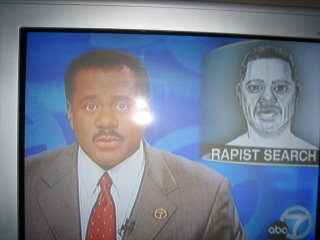As part of my I live in New York now Cultural Events Campaign, I went to a bunch of New Yorker Festival events this weekend. The most intellectually thrilling thing I saw was Zadie Smith’s lecture on novel-writing, and the most emotionally thrilling was when the New Pornographers got to the last chorus of “The Bleeding Heart Show,” when Neko sings “We have arrived!” But the most personally reassuring part was Financial Page genius James Surowiecki, who interviewed the New Pornographers before they brought the rock.
Suroweicki won me over immediately by being less good-looking than the photo on the jacket of his book, which is to say he’s only very good-looking, as opposed to intolerably good-looking. Then he had to interview the New Pornographers on stage. Onstage interviews are usually bad, because you can’t edit them, and musicians make particularly poor interview subjects because, with a few important exceptions (Springsteen, John Darnielle), they’re usually less articulate than they are intelligent. So interviewing seven musicians at once, onstage, would seem a tough gig, and so it proved. Carl Newman is funny, and Neko Case is clearly just as intelligent in real life as she is in my having-a-witty-conversation-with-Neko-Case fantasies, but, y’know, what are you going to ask the keyboard player?
Surowiecki did about as well as you or I might have done in similarly challenging circumstances. He made the mistake of beginning with a question about how the band got its name. (All musicians hate being asked this, because the answer is always “We thought it sounded cool,” and no one wants to say that.) He also asked if they saw themselves as part of a power-pop movement, to which Newman asked, “What’s power-pop?”, putting Surowiecki in the absurd position of trying to explain power-pop to Carl Newman. (Neko bailed him out by addressing the original question. She’s so nice. I wonder if she wants to hear any of my songs.)
But so then microphones were set up in the aisles and Surowiecki asked the audience for questions, and no one had any. There was kind of an awkward silence, and then there was a thing where a kid got up from his seat and it looked like he was going to ask a question, and Surowiecki said “I hope he’s got a question,” and then it turned out the kid was just going to the bar, and Newman said, “That was cold-blooded.” After that, obviously, no one was going to stand up and walk to the mic and say, “Uh, Mr. Newman, sir: the chorus to ‘Mass Romantic’? Did it just come to you in a flash, or did you have to sit there with a guitar and work it out?” And after a little more silence, Surowiecki said, “Do you guys just want to hear them play?”, to which everyone cheered loudly in order to identify themselves as people who enjoy awesome Rock as opposed to lame Questions.
So the New Pornographers got up to go to the bathroom before playing, and the stage guys finished setting up the gear, and Surowiecki came and sat down next to (I’m assuming) his girlfriend, who turned out to be sitting directly behind me. As a result of this seating coincidence, I got to hear their post-interview conversation, which it turned out was the exact same conversation that you would have with your girlfriend if you found yourself in that situation and happened to have written The Wisdom of Crowds:
HIM: So that went OK, right?
HER: Yeah, no, it was good.
HIM: Some of it was kind of awkward, but some of it was pretty good.
HER: Yeah! He’s funny, A.C. Newman!
HIM: I just wonder why no one had any questions.
HER: Oh, I think it was that long pause, and then that thing with the guy getting up, and after that no one was going to get up and ask a question.
HIM: [in a self-conscious voice that somehow conveyed “Yes, I am citing my own best-selling book, but I am also making fun of myself for citing it.”] Oh, right – information cascade!
And then the New Pornographers came back on and went into “Sing Me Spanish Techno.”
